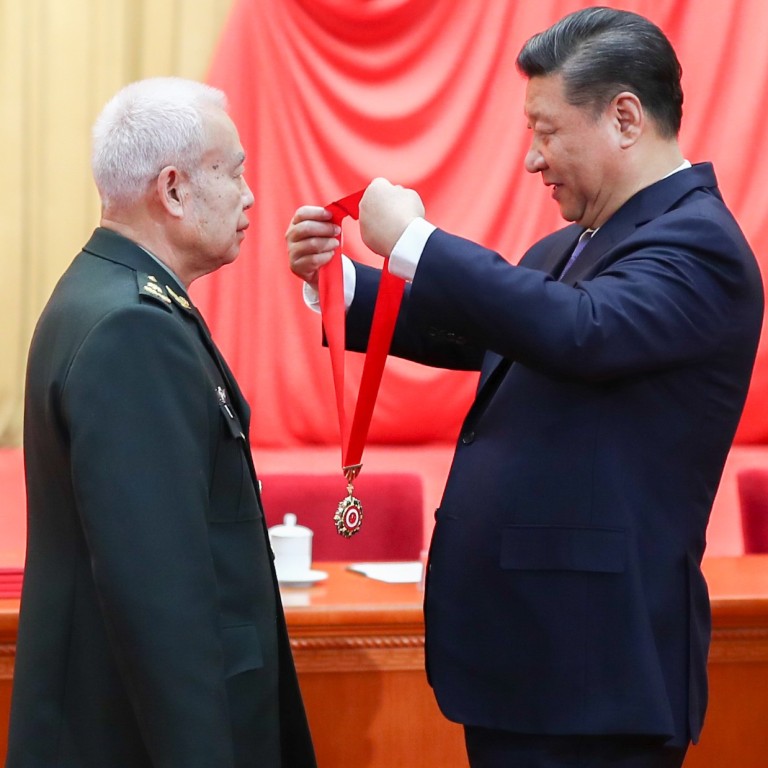
Xi Jinping is right to push for advances in technology
- Failing at innovation, as the president warns, means ‘our productivity will suffer and lag behind, and we will lose in the global economic competition’
It’s a long way to go from nuclear blast-proof underground facilities to the Hong Kong-Zhuhai-Macau Bridge, but the expertise in the geo-mechanics of rocks is an example of the application of military defence technology to civilian engineering. In awarding the nation’s highest scientific honour to octogenarian military engineer and rock mechanics expert Qian Qihu, President Xi Jinping and Premier Li Keqiang took the opportunity to drive home the message that China’s prospects depend on advances in science and technology.
As the low-hanging fruits of downscale production have all been picked, the future of China’s economy depends on innovative civilian applications. That is, no doubt, the common goal, but it remains a work in progress. As part of the celebration, People’s Daily even published a primer on Xi’s “key policy instructions on science and technology and national rejuvenation”. It is easier said than done.
China honours defence engineer, radar expert in science and tech awards
The ongoing trade war with the United States has exposed many areas in which the country still depends on advanced technologies and products made overseas. For example, sanctions threatened by Americans to block the supply of key components to ZTE would have destroyed the mainland telecoms giant if they had been carried out. In this context, Xi’s guide is an indirect response to such US concerns; it offers both a reassurance and a challenge to Washington.
The Americans are demanding a systemic overhaul in intellectual property protection in their tough bargaining with Beijing. China wants to protect IP rights, too, as mainland research and commercial enterprises switch to hi-tech production and innovation. Given China’s top-down management on research and funding, it is inevitable many such applications will have their origins in the military. But irrespective, civilian use and commercialisation, Xi points out, are a primary goal. And that requires a change in the mindset of state-funded scientists. Likewise, entrepreneurs and enterprises need to spot such applications quickly.
The US trade war is a wake-up call that China is in an “intense technology competition”. Failing at innovation, as Xi warns, means “our productivity will suffer and lag behind, and we will lose in the global economic competition”. That is not an attractive prospect in what is supposed to be the China century.

